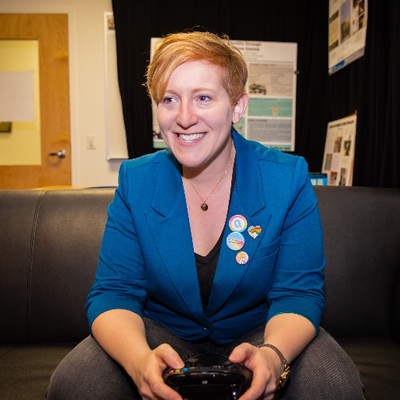It’s an honor to be part of the “Contested Forms of Digital Game Labor” special issue of Television & New Media, which just came out (online first) just a couple days ago. The issue was edited by the Greig de Peuter and Chris J. Young and it includes work from a truly amazing list of scholars. If you’re interested in labor issues in/around digital games, I highly recommend it.
My piece in the issue is called “The Precarious Labor of Queer Indie Game-making: Who Benefits from Making Video Games ‘Better’?” It’s about how queer indie game developers are being celebrated for making the games landscape (and especially the work of AAA companies) more diverse while going largely uncompensated for that labor. Here’s the abstract.
This article looks at issues of precarious and exploited labor surrounding contemporary queer independent video game making. In recent years, there has been a marked rise in indie games made by and about lesbian, gay, bisexual, transgender, and queer (LGBTQ) people. These games and their creators are commonly lauded for inspiring change in the mainstream game industry and making the medium of video games more diverse and therefore “better.” However, this cultural narrative obfuscates the socioeconomic challenges faced by many queer indie game-makers. Drawing from interviews conducted by the author, this article presents a counter-narrative about the work of developing video games by and about marginalized people. Although such games are often described as “easy” or “free” to make, they in fact entail considerable, and rarely fairly compensated, labor. Simultaneously, value is being extracted from this labor by companies who look to queer indie games for inspiration, which translates into profit.
Thanks to Greig and Chris for including my work in the issue!

